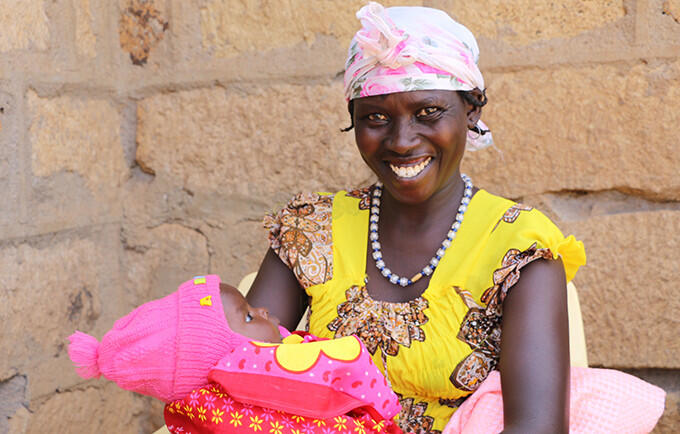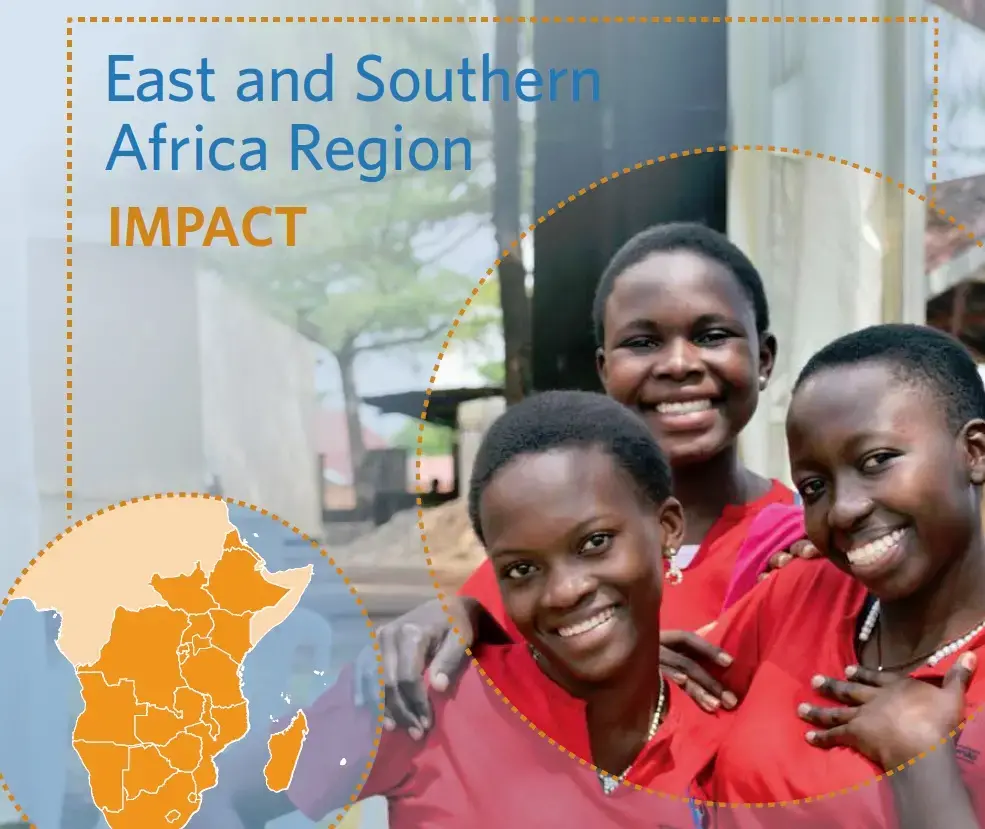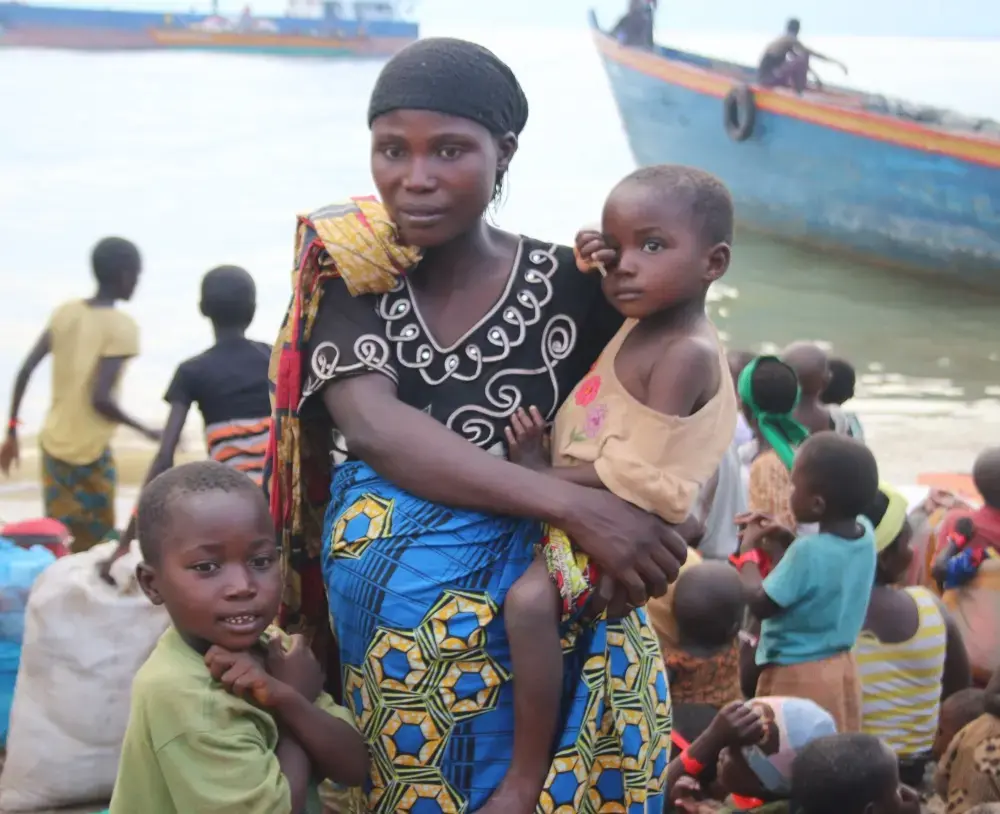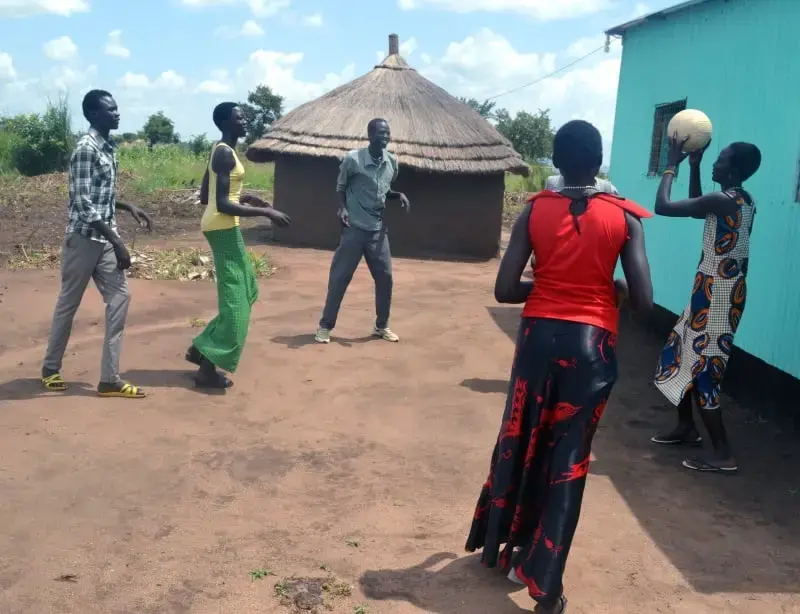Women and girls bear the brunt of political instability and ethnic conflicts. They are not spared either from the perils of droughts and food insecurity. To commemorate World Humanitarian Day, Dr. Julitta Onabanjo, Regional Director of UNFPA, East and Southern Africa, calls for a renewed sense of urgency in ensuring health, protection and dignity in all humanitarian situations.
The East and Southern Africa region is home to humanitarian crises that are having a devastating effect on the health, dignity and rights of women and girls. Millions have been dislodged from their homes and livelihoods due to conflicts, and millions more remain food insecure.
Over a decade, an estimated 7.4 million people have been displaced by intercommunal violence and protracted armed conflicts in the Great Lakes region. More than 4.5 million of these are internally displaced persons (IDPs) in the Democratic Republic of the Congo (DRC), up to 80 per cent of whom have been on the move for more than 10 years and are suffering from extreme poverty and insecurity. The majority of them are women, young people and children.
In the Horn of Africa region, more than 13 million people are affected, 9.5 million of whom are IDPs and nearly 4 million are refugees, mostly from South Sudan.
More than 44 million people in East and Southern Africa are presently food insecure, nearly 36 million of them severely so.
In humanitarian crises, women and girls are especially vulnerable to gender-based violence and exploitation. Their day-to-day activities – such as looking for food and water for the family, collecting firewood, attending the market, or engaging in other household duties – more often than not further expose them to abduction, exploitation, and abuse.
And humanitarian crises dramatically elevate risks to the lives of pregnant women and newborn babies.
Harrowing experiences
The pastoral community in which Lena Towai, 35, lives in Tangulbei, in Kenya’s East Pokot County, has seen a sharp increase in cattle rustling and armed conflict over pastureland and water. In the final days of her pregnancy, she eagerly awaited the arrival of her seventh child. Yet her world was turned upside down with the onset of conflict in her region. She faced an armed assault, fled into the wilderness and give birth in the dark assisted by a neighbour with a gunshot wound.
Fortunately, Lena received the medical care she needed in a hospital supported through a collaborative effort between UNFPA and the Kenyan government. Her baby was born safely and she has recovered from the birth.
Yvonne Mboi left behind her home in the DRC’s conflict-ridden Kasai province and made a harrowing journey while in the early stages of her pregnancy. With her husband and young daughter, she was one of more than 35,000 people to flee to Angola’s Lunda Norte Province. But the rapid influx of refugees placed increased pressure on public services – including the health system. Thanks to a prompt Caesarean section provided by skilled medical attendants supported by UNFPA, her twins were born safely.
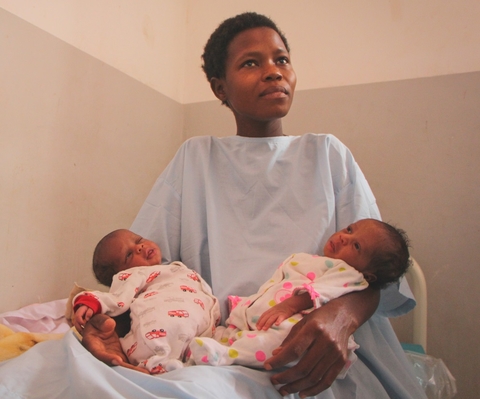
conflict in the Kasai region of the DRC and sought refuge in Angola.
© UNFPA Angola/Tiril Skarstein
No longer a target
World Humanitarian Day, themed #NotATarget, presents an opportunity to reflect on the need for greater commitment to the health, safety and dignity of women and girls during humanitarian crises.
As a major player in protecting the sexual and reproductive health, well-being and dignity of women and girls in humanitarian settings, UNFPA ensures that women and girls affected by all forms of emergency situations have the services and protection they need for their health, sanity and dignity.
In South Sudan, UNFPA, with support from the governments of Japan, Korea, UK, Denmark, and the USA, provides lifesaving sexual and reproductive health and gender-based violence services and information. More than one million women and girls have benefited from this support each year since 2014.
Since South Sudan’s independence in 2011, the number of qualified midwives increased from 8 to 600 in 2017 – a huge feat, enabled by UNFPA in collaboration with the Ministry of Health and with funding from Canada and Sweden. This enlarged workforce of midwives is ensuring that the process of giving birth is safer. In 2017, despite being overburdened by the thousands of clients they served in the Protection of Civilian (POC) camps in Juba, UNFPA-supported health clinics reported zero maternal deaths.
And to respond to sexual violence, late in 2017 UNFPA established the first One-Stop Centre that provides comprehensive services for survivors of gender-based violence, under one roof at Juba Teaching Hospital. The centre has managed more than 300 cases and prosecuted 32 cases, with two convictions. Prosecutions and convictions are few because survivors usually seek assistance too late.
In the DRC, during the armed conflict in the Kasai province in 2017, UNFPA established nine mobile clinics and seven safe spaces for women. It supported 58 health facilities in the delivery of lifesaving sexual and reproductive health services, including emergency obstetric newborn care and clinical care for survivors of sexual violence.
In all humanitarian situations in the region, UNFPA provides leadership in addressing gender-based violence, including sexual violence, through safe spaces for women and girls, and facilities offering psychosocial support and clinical management of rape, including referrals to other specialized services.
No woman or girl chooses to be in a crisis situation. On the African continent, we cannot allow our women and girls to be the target of exploitation during humanitarian crises – neither to be raped nor held hostage as a weapon of war.
This is why we are calling for all key and critical actors to protect from harm the most vulnerable people – our women, our girls and our young people – in humanitarian crises. We need urgent and renewed engagement of governments, donors, the United Nations private sector and civil society organizations.
We need to act now if we are to protect the valuable lives of our women and girls in crisis situations.
We need to act now if we are to dramatically reduce unwanted risks and suffering.
And we need to act now if we are to ensure their right to dignity, safety and health.
Dr. Julitta Onabanjo
Regional Director, UNFPA East and Southern Africa
Johannesburg, South Africa

